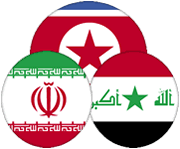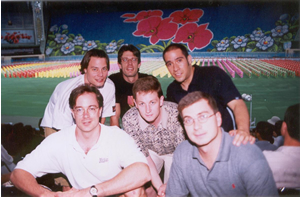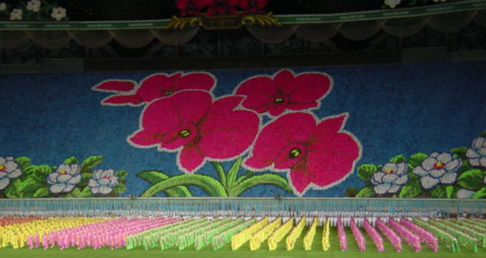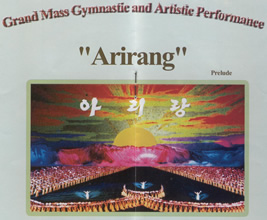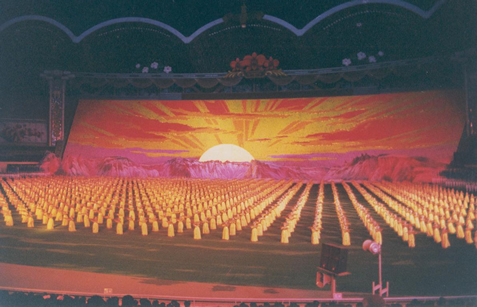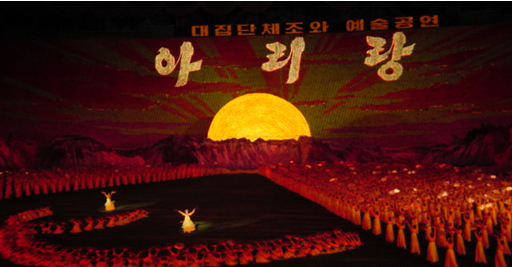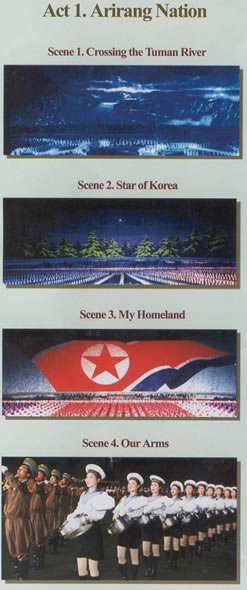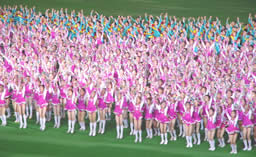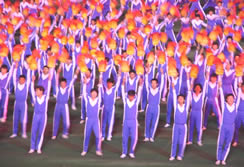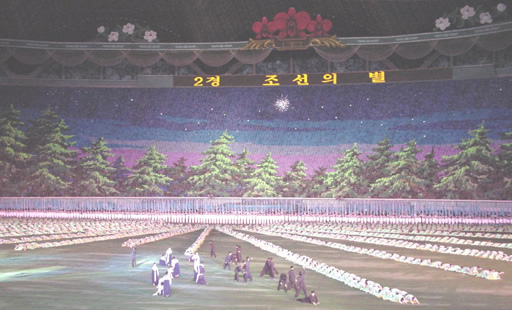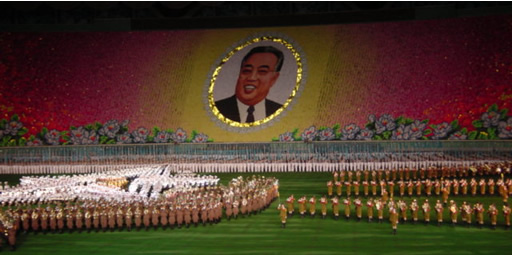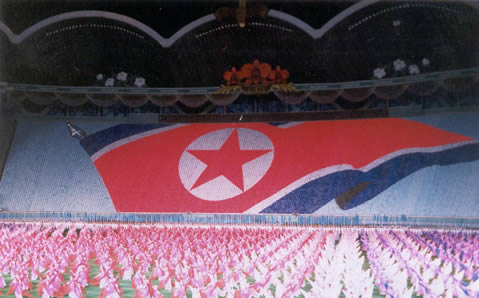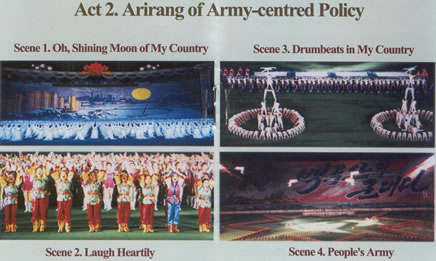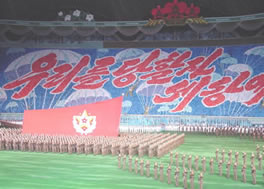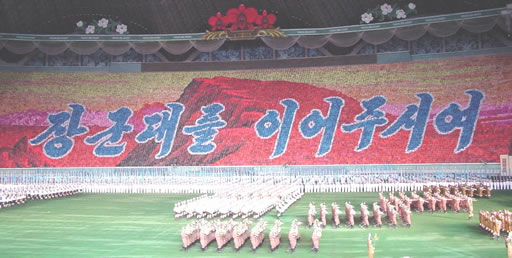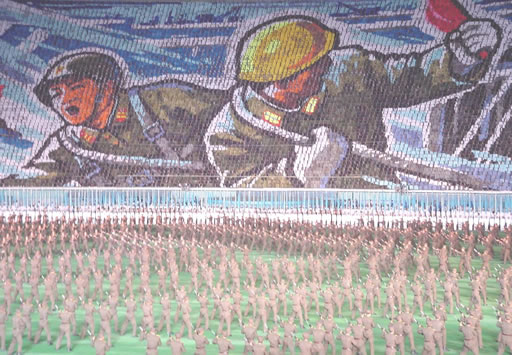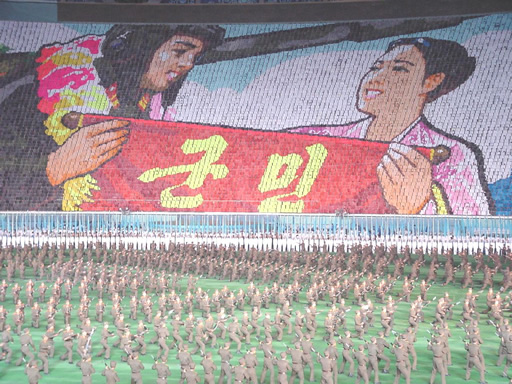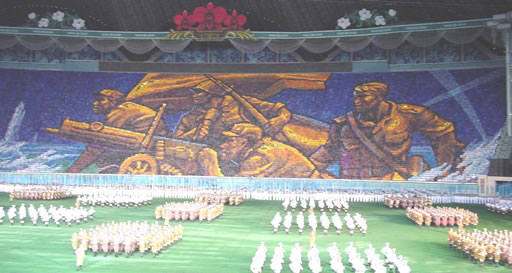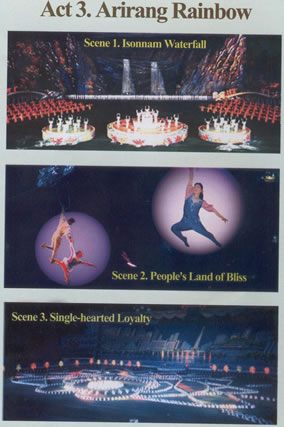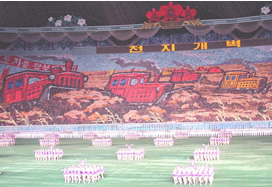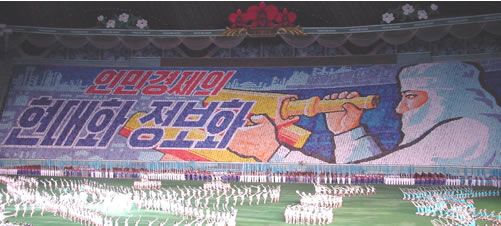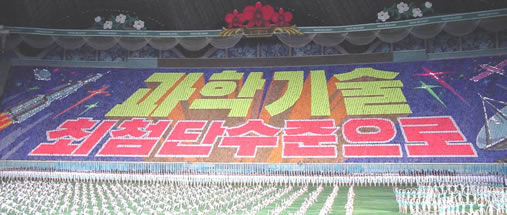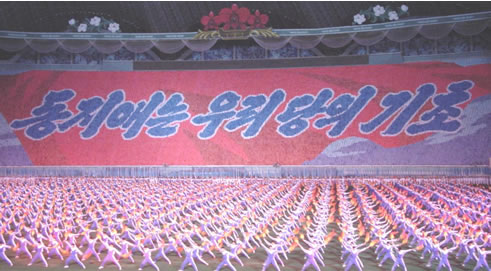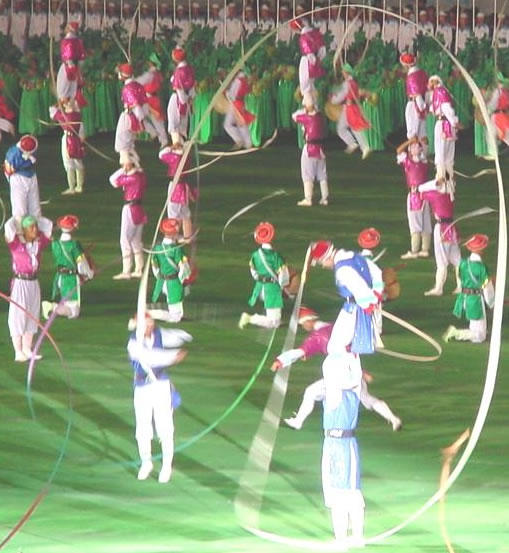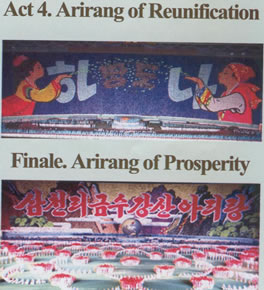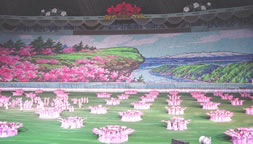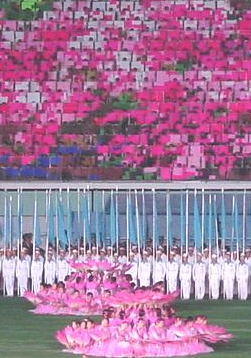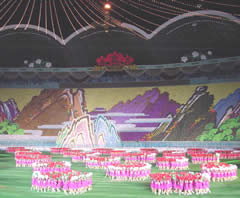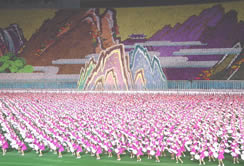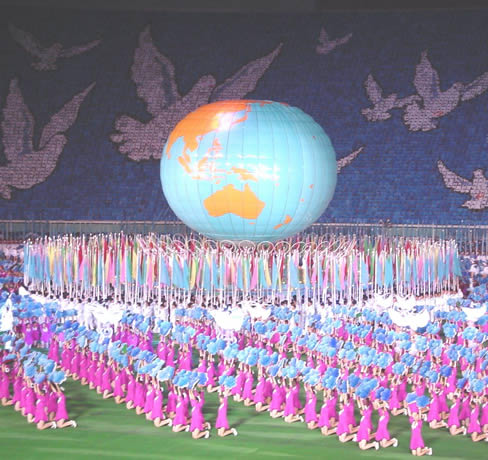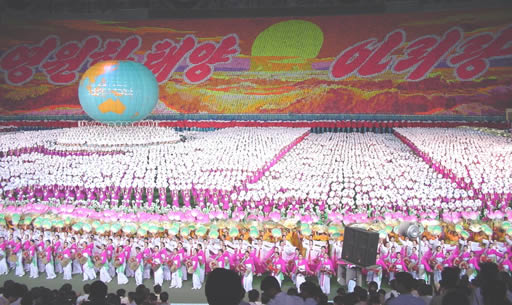|
Arirang Festival |
|||||||
|
I'd heard and read plenty about this show before I came and had been kind of skeptical. A bunch of people flipping around colored squares? How cool could that be? Well, to put it mildly, my expectations were blown away. The show was spectacular, and somewhat eerie, all at the same time. If Orwell had put a stadium scene in 1984 this would have been it. How could 100,000 people, as everyone claimed anyway, all work together in such perfect harmony? Mr. Huk, who sat next to me throughout the performance and who always seemed brimming with fervor to show us nonbelievers the one true way, used the beauty of the performance to fill my ear, endlessly, with the utter, undeniable greatness of North Korea. For him this many people working together in lockstep precision was a sign that he and his countrymen were of one pure heart, of one pure mind, working together to fulfill the ideals of the Kims and Juche. "The people who come here for the performance are from all walks of life. Workers, students, soldiers, everyone who comes here is a volunteer. No one is paid. They do it because they love our country. The Arirang Festival shows how we can work together as one to achieve anything we desire, no matter who stands against us." Mr. Huk was polite enough not to point out the 'who' in this sentence meant me, or more specifically, my government. And of course the puppet government down in the South where I was living. The spectacle was something I'll never forget, though perhaps not for the reasons Mr. Huk and his countrymen intended. The show was so precise as to be robotic. No one outside the group, everyone buried within it. All done with a flair and focus that was chilling to behold. The model of mass unity that was being held up as proof of greatness and independence smacked of mindlessness. Of course everyone in the performance was human, with their own hopes, dreams and desires. This though was something to be eliminated, not tolerated or encouraged. These were things that still had to be rooted out in an effort to build the utopian, Juche-centered society. The zeal in Mr. Huk's voice spoke not of a country, but of a cult. [For another, similar take, please see The Economist's book review of B.R. Meyers' The Cleanest Race: How North Koreans See Themselves - And Why It Matters] |
|||||||
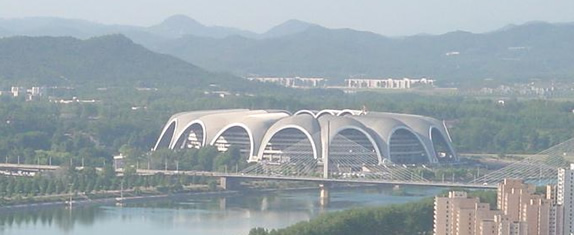 Daytime view of the Arirang Festival stadium Photo courtesy Thomas St. John |
|||||||
